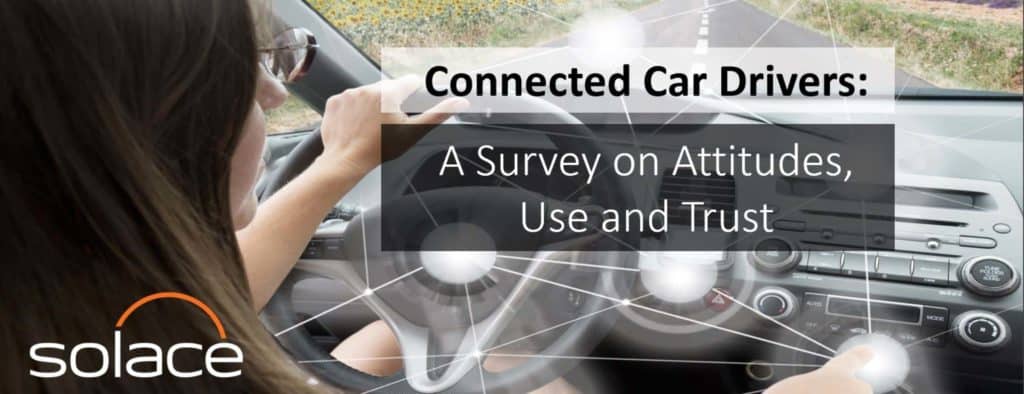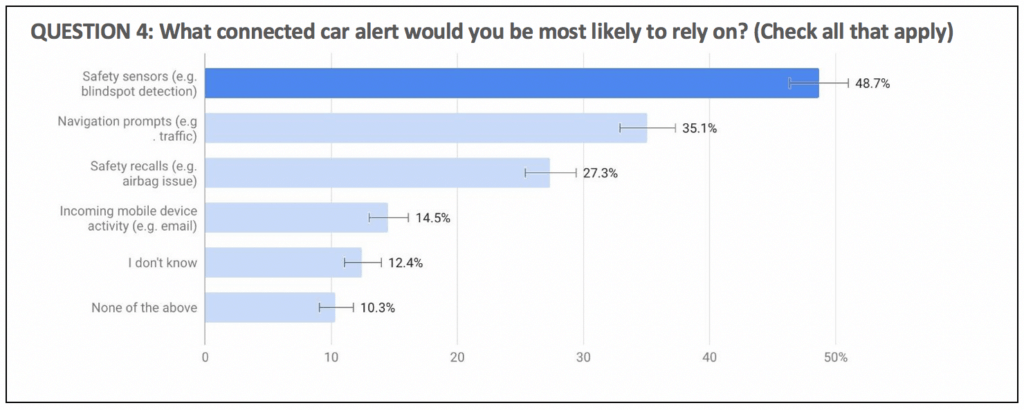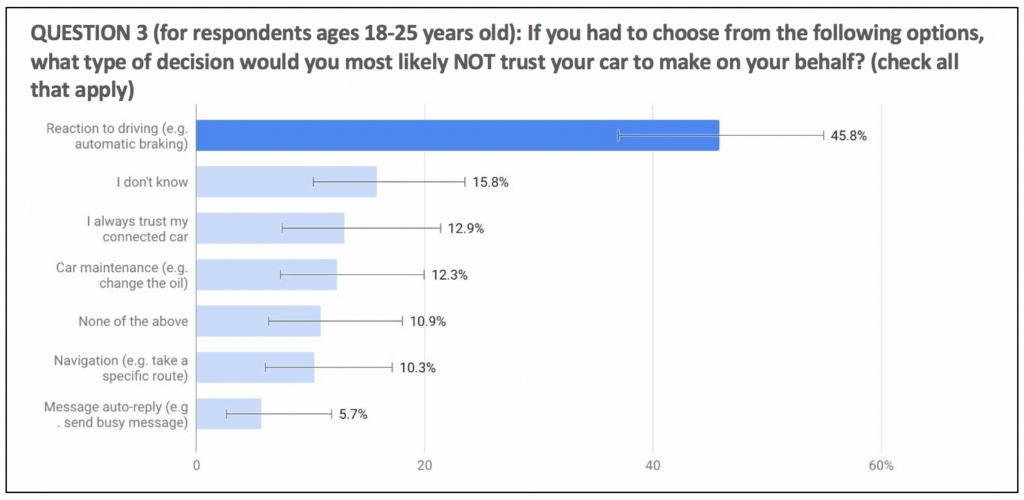 While widely assumed to be early adopters, connected car drivers aren’t interested in handing over the controls to self-driving cars, according to a new survey from Solace, a leading provider of data movement technology for connected vehicles and other Internet of Things (IoT) devices. In fact, more than half of the 1,500 respondents (57 percent) noted they would not buy a self-driving car, even if cost weren’t an issue.
While widely assumed to be early adopters, connected car drivers aren’t interested in handing over the controls to self-driving cars, according to a new survey from Solace, a leading provider of data movement technology for connected vehicles and other Internet of Things (IoT) devices. In fact, more than half of the 1,500 respondents (57 percent) noted they would not buy a self-driving car, even if cost weren’t an issue.
The survey concludes that “for connected car drivers, new connected technologies have clearly improved their driving experience. But in the buzz of excitement around self-driving cars, it’s clear that consumers are more comfortable with minor modifications than full-on experiential takeovers.|”
While consumers and, more specifically, connected car drivers, are open to incorporating new technology into their driving experience, they are not ready to hand over the wheel. Drivers today prefer technology that has an “influence” rather than a direct impact on their driving.
“The automotive industry is focused on bringing self-driving cars to the mass market, but our survey showed that connected car drivers of all ages just aren’t ready to hand over the wheel,” said Shawn McAllister, CTO of Solace. “While advancements in autonomous vehicle technologies are incredibly exciting, it’s important to keep an understanding of the consumer front and center. We hope our survey will help in this regard.”
Among common connected car features, drivers are most reluctant to trust their car to automatically react to driving conditions for them. Counterintuitively, almost half (46%) of young millennials wouldn’t trust their car to automatically react to driving conditions, whereas only a third of drivers 65 or older felt that way.
Other insights from the survey included:
- When it comes to connected car capabilities, safety and navigation features are the most trusted and valued for U.S. drivers. Half (49 percent) of U.S. drivers are most likely to rely on safety sensors – such as lane departure alerts – in a connected car; while one in three (35 percent) are most likely to rely on navigational driving prompts. One in four drivers (26 percent) also believe navigation is the most valuable connected feature for their driving needs; while 20 percent selected safety monitors as the most valuable connected feature.

- Connected car drivers aren’t overly dependent on apps when they drive, but app performance impacts their driving experience. When asked how many applications connected car drivers depend on while driving, over half (53 percent) of respondents noted they use only one to two applications while driving, while less than three percent noted they use more than five. Examining driver frustrations when it comes to features in their connected car, roughly 15 percent said that if an app they’re using froze or stalled while they were driving it would create a poor driving experience. Additionally, almost one in five (18 percent) noted they become frustrated while driving if an app provides incorrect information.
- Most consumers don’t know what happens to their data in a connected car. While data storage has become a growing concern for connected cars, especially those in the rental market, Solace found that almost half of connected car drivers (48 percent) weren’t aware that their vehicle could store their personal data, such as their home address, social security number, birthday, etc.
- Among top U.S. car brands, consumers see no clear leader when it comes to innovative technology. When asked which top selling car brand in the U.S., including Ford, GM, Honda, Toyota, BMW, and Mercedes, has the most innovative technology features, one in three consumers (35 percent) selected none of the above. Among younger drivers (ages 18-25), however, two companies stood out: Mercedes (14 percent) and BMW (13 percent).
The survey, conducted between January 17 and 19, 2018, polled U.S. online consumers who identified as connected car drivers. All results were weighed against the U.S. Census Bureau Current Population Survey for age or gender so as to be representative of the adult U.S. Internet population. For information on the survey findings, visit: solace.com/research-connected-car-drivers

